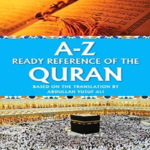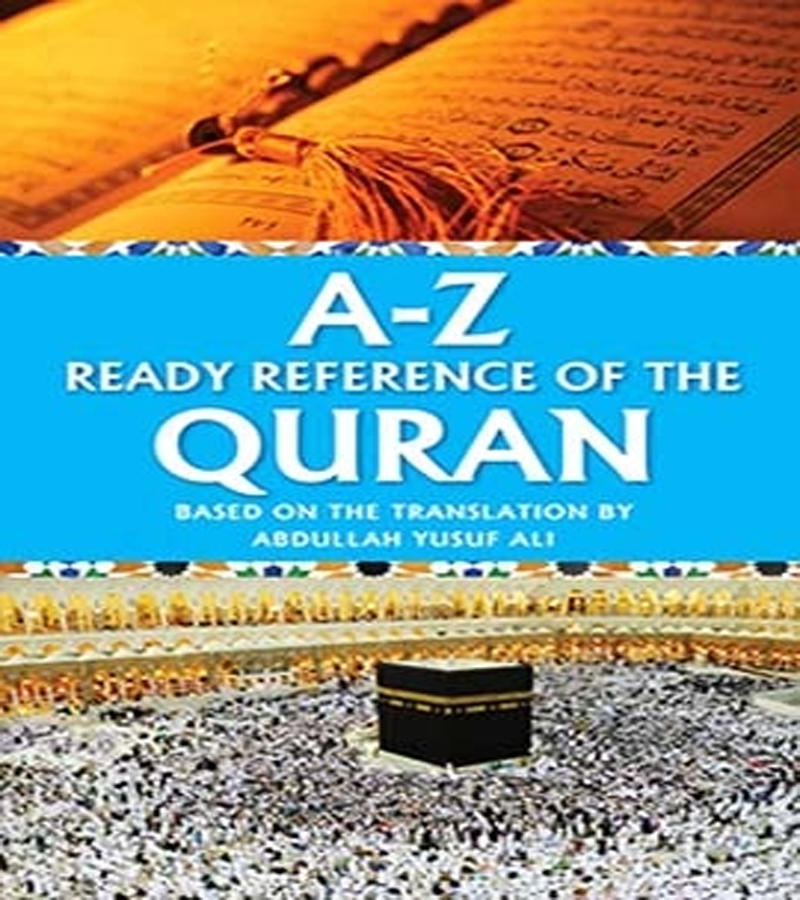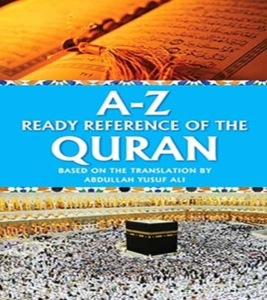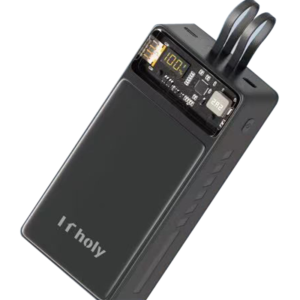Description
An A-Z Ready Reference of the Quran
provides a comprehensive guide to the themes, topics, and key concepts covered in the Quran, arranged alphabetically. A-Z Ready Reference of the Quran – English Here’s an overview of what such a reference might look like,https://www.youtube.com/@Laxbd with key entries for each letter:

A
- Adhan: The Islamic call to prayer.
- Ahl al-Bait: The family of the Prophet Muhammad, including his daughter Fatimah, son-in-law Ali, and grandsons Hasan and Husayn.
- Al-Fatiha: The opening chapter (Surah) of the Quran, recited in every unit of the Muslim prayer.
- Ayah: A verse in the Quran.
B
- Bismillah: “In the name of Allah”,https://laxbd.com the phrase that begins most chapters in the Quran.
- Baqara: The second and longest chapter of the Quran, A-Z Ready Reference of the Quran addressing various themes including faith, law, and guidance.
- Bani Isra’il: The Children of Israel; refers to the descendants of the prophet Jacob (Ya’qub).
C
- Caliph: The religious and political leader in Islam after the death of the Prophet Muhammad.
- Covenant: The agreements or promises made by Allah with the prophets and their followers.
D
- Dawah: The invitation to Islam, spreading its teachings.
- Dhul-Qarnayn: A figure mentioned in the Quran, often identified with Alexander the Great or another great ruler.
E
- Eid: A festival in Islam, celebrating important occasions such as the end of Ramadan (Eid al-Fitr) and the annual pilgrimage (Eid al-Adha).
- Eternal Life: In the Quran, life after death in paradise or hell, depending on one’s deeds.
F
- Fasting (Sawm): One of the Five Pillars of Islam, where Muslims abstain from food, drink, and other physical needs during daylight hours in the month of Ramadan.
- Fitr: The charitable giving that is given before Eid al-Fitr, one of the forms of charity in Islam.
- Firaun (Pharaoh): The title of the Egyptian ruler in the A-Z Ready Reference of the Quran time of Prophet Musa (Moses), mentioned in many places in the Quran.
G
- Ghazwa: A battle fought by the Prophet Muhammad and his followers, often mentioned in the context of Islamic history.
- Ghulam: A young man or servant, sometimes used to refer to those who assist in religious or military service.
H
- Hajj: The annual pilgrimage to Mecca, one of the Five Pillars of Islam.
- Halal: Anything permissible or lawful according to Islamic law.
- Haram: Anything forbidden in Islam.
I
- Iblis: The devil or Satan, who refused to bow to Adam and was cast out of paradise.
- Imam: A leader in the Islamic community, particularly in the context of prayer or religious guidance.
- Ihsan: The concept of excellence or perfection in worship and behavior.
J
- Jannah: Paradise, the eternal abode of reward in the afterlife for those who are righteous.
- Jihad: The struggle or effort, particularly in the path of God. It can refer to both spiritual and physical struggle.
- Jizya: A tax levied on non-Muslims living in an Islamic state, often in exchange for protection and exemption from military service.
K
- Kafir: A disbeliever or one who rejects Islam.
- Kalb: The dog, an animal mentioned in the Quran in various contexts, often as an example of loyalty or impurity.
L
- La ilaha illallah: “There is no god but Allah,” a central tenet of Islamic faith.
- Lailat al-Qadr: The Night of Decree, the night in which the Quran was first revealed, considered the holiest night of Ramadan.
M
- Muhammad: The Prophet of Islam, who received the Quran as revelation from Allah.
- Madhhab: A school of thought or jurisprudence in Islam.
- Maqrah: Repulsion or dislike for something; commonly used in the context of the prohibitions in Islam.
N
- Nabi: A prophet in Islam, someone chosen by Allah to guide people.
- Nikah: Marriage, which is considered a lawful and important social contract in Islam.
- Nahr: The slaughtering of an animal, typically during Eid al-Adha.
O
- Omar (Umar ibn al-Khattab): The second caliph of Islam, known for his leadership and reforms.
- Oath: A serious promise or declaration in Islam, often invoking the name of Allah.
P
- Prophets: Individuals chosen by Allah to guide humanity, such as Musa (Moses), Isa (Jesus), and Ibrahim (Abraham).
- Purity: Physical and spiritual cleanliness, which is emphasized in Islam through ablution (wudu) and other rituals.
Q
- Qibla: The direction towards the Kaaba in Mecca, which Muslims face during prayer.
- Quran: The holy book of Islam, believed to be the literal word of God revealed to the Prophet Muhammad.
- Qadar: Divine predestination or the belief in God’s control over everything.
R
- Ramadan: The ninth month of the Islamic calendar, during which Muslims fast from dawn to sunset.
- Riba: Interest or usury, which is forbidden in Islam.
- Ruh: Spirit or soul, mentioned frequently in the Quran in reference to the life force given by Allah.
S
- Salah: The five daily prayers in Islam, one of the Five Pillars.
- Shahada: The testimony of faith, declaring that there is no god but Allah and Muhammad is His messenger.
- Sadaqah: Voluntary charity, one of the forms of giving in Islam.
T
- Tawhid: The concept of the oneness of Allah, central to Islamic theology.
- Tafsir: The interpretation and explanation of the Quranic verses.
- Tariqah: A path or way, particularly in Sufism, referring to the spiritual journey toward God.
U
- Umm al-Mu’minin: The “Mother of the Believers,” a title given to the wives of the Prophet Muhammad.
- Umrah: A lesser pilgrimage to Mecca that can be performed at any time of the year, unlike Hajj.
V
- Virtue: The qualities of piety, good character, and moral excellence that the Quran encourages in its followers.
W
- Wudu: The ritual ablution or washing performed before prayer.
- Wali: A guardian or protector, especially used in the context of the guardian of a woman in marriage.
X
- Xenophobia: The Quran promotes kindness and tolerance to strangers, emphasizing that all humans are part of one family.
Y
- Yawm al-Qiyama: The Day of Judgment, when all souls will be resurrected and judged according to their deeds.
- Yusuf: The Prophet Joseph, whose story is detailed in the Quran, known for his beauty, wisdom, and patience.
Z
- Zakat: The obligatory charity that Muslims must give, usually 2.5% of their wealth, one of the Five Pillars of Islam.
- Zulm: Oppression or injustice, which the Quran strongly condemns.
This is a basic A-Z reference of key terms and concepts found in the Quran. There are many more detailed entries and interpretations depending on the depth of the reference.







Reviews
There are no reviews yet.